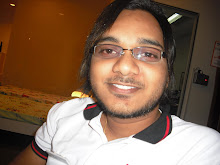
In Hinduism, Shakti means energy or potency or the sacred force of the divine goddess. Shakti or the Divine Mother is represented as the consort of God. Shakti symbolizes the lively and the energetic entity of the female power. On one hand, in Shaktism, Shakti is worshiped as the Supernatural Being. On the other hand in Shaivism and Vaishnavism, Shakti personifies the active energy and power of male power or Purushas. Such as Vishnu in Vaishnavism or Shiva in Shaivism. In Vaishnavism, Lord Vishnu`s Shakti counterpart is called Lakshmi, and in Shaivism, Lord Shiva`s female Shakti is his wife Devi Parvati.
Shaktism refers the Devi or the Goddess as the Supreme Brahman. Shakti is the one without a second, and is considered as the divinity of various forms. The Saktas believes that Shakti is the energetic feminine aspect of the Supreme Divine. Lord Shiva, the male aspect of divinity, is solely transcendent, and his worship is generally referred to be secondary.
In Vaishnavism, Lord Vishnu signifies the Shakti. He is the active energy and power of male supreme deity. Vishnu`s Shakti consort is Goddess Lakshmi. In a school of Vaishnavism, Srivaishnavism, Lakshmi or Shri does not play any important part in the creative function of the Lord as Devi. Vaishnavism `Shakti` is the great creator and Shri is a part of Lord Vishnu. Like Vishnu is the father who stands for supreme justice, and Shri, the mother of the universe represents the element in the liberation of mankind.
As mentioned in the Smarta tradition of Hinduism, Shakti is represented as one of the five equal scripture-sanctioned forms of God in the panchadeva system.
It is also believed that Shakti is Lord Indra`s wife Sanchi or Indrani which means power. Indrani is said to be a part of a group of seven or eight mother goddesses called the Matrikas. The names of Matrikas are Brahmani, Vaishnavi, Maheshvari, Indrani, Kumari, Varahi and Chamunda and/or Narasimhi. The Matrikas are considered Shaktis of most important Hindu Gods, Brahma, Vishnu, Shiva, Indra, Skanda, Yama and Narasimha.
The goddess Shakti is also known as Amma in South India. Shakti is a sign of protection of the country, the punisher of evil people, the curer of diseases, and the one who gives happiness to the village. There are about fifty one Shakti Peethas which are centres of Shakti worship.
In Hinduism, Adi Shakti is the ultimate Shakti, the final feminine power inherent in all Creation. Devi Prakriti is a Shakti is the force that unifies Kundalini, Kriya, Itcha, Para, Jnana and Mantrika Shaktis. Each of Shaktis is unified in a chakra.

No comments:
Post a Comment